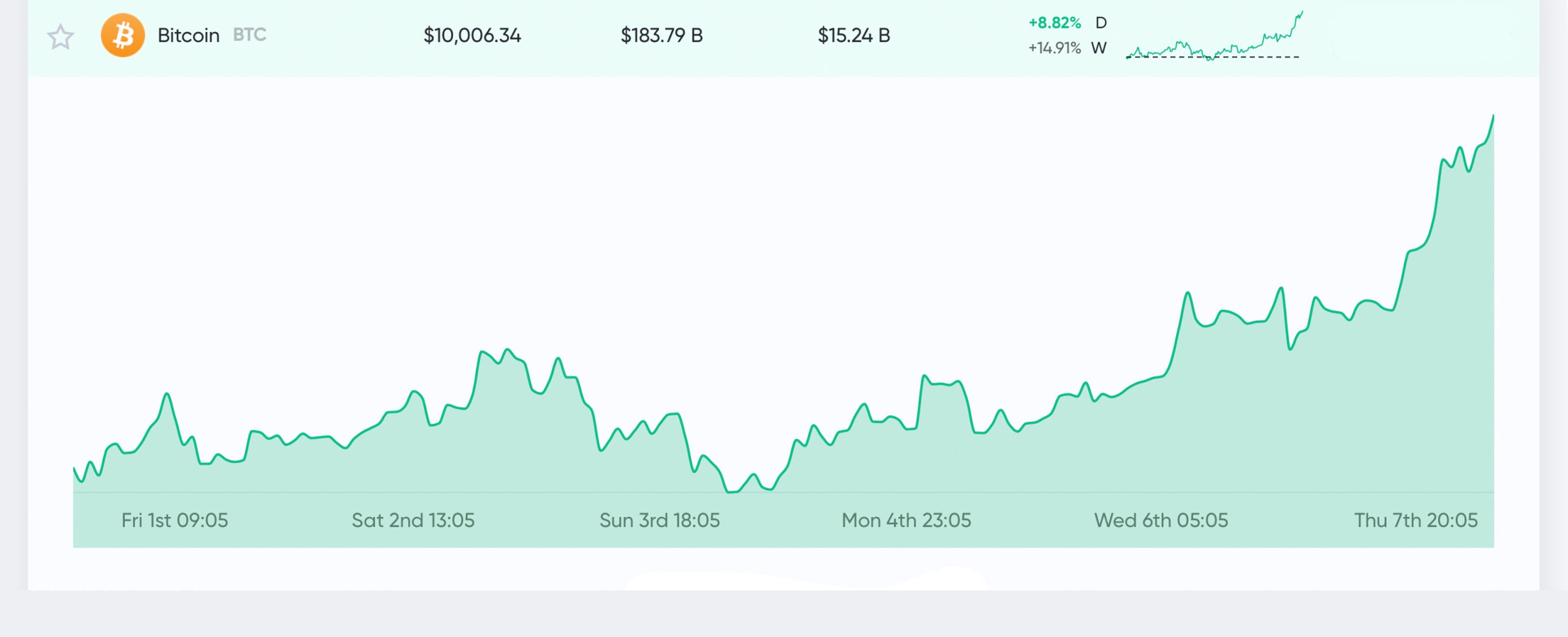
On May 7, 2020, the price of a single bitcoin crossed $10,000 per unit in USD value as the network only has four days until the halving, otherwise known as the “quantitative hardening” by some investors. The cryptocurrency’s per annum inflation rate will drop from 3.6% to 1.8% on or around May 12, 2020, as banks like the Federal Reserve flood the monetary system with stimulus by creating trillions out of thin air.
The digital asset BTC has made headlines today, as the price per unit has once again crossed the $10K zone. After dropping to $3,600 per BTC on March 12, otherwise known as ‘Black Thursday’ the price has since gained over 177%. There is no asset (besides a few other cryptocurrencies), stock, commodity, or precious metal that has experienced a sizable gain such as BTC’s recent run-up. The price gives the crypto asset a $184+ billion market valuation, and there’s around $15 billion worth of global trade volume today.
A number of investors believe the rise in price is due to the upcoming halving on or around May 12. The BTC network’s block rewards are halved after this date and miners who find blocks will only get 6.25 BTC as opposed to the former 12.5 coins. The chain halves every four years or every 210,000 blocks mined.

This week, the crypto analytics startup Messari.io and the digital currency exchange Bitstamp, published a report about the crypto asset’s third halving and the implications. Within the research report, the companies explain “miner economics” and how as soon as the BTC network halves, there will be a “50% overnight drop in revenue” for miners. This will cause a lot of attention toward BTC’s price and network hashrate.
“While this overnight drop may not be a shock, given that the halving is known in advance, it doesn’t mean that planning for the halving is straightforward,” the report details. “The amount of new BTC issued every block is only one side of the equation. The other side is bitcoin’s price.” The report concerning BTC’s block reward halving further notes:
Without a 100% price increase to counteract the reduction in new issuance, every miner’s revenue will be impacted significantly. Those with the most efficient cost structures will ultimately stay in business. Those with inefficient structures will likely be forced to shut off their machines once profitability dips below break-even levels. While most miners cannot immediately shut off their machines due to contractual obligations with colocation facilitates and utilities, those with the highest costs to produce new BTC will eventually capitulate and go bankrupt.
With the price of BTC crossing the $10K zone, it helps but a number of speculators and skeptics are more concerned about after the halving. Some theories and estimates suggest that $10K per BTC might not be enough for some mining operations to survive. According to a recent study published by Tradeblock, the price will need to be around $12.5K or above for a great majority of miners. While some speculators assume mammoth prices await investors, others believe the price could drop significantly after the halving. Either way, most cryptocurrency proponents will be watching.
What do you think about the price of BTC crossing $10K? Let us know in the comments section below.
The post Bitcoin Price Touches $10K Amid 2020’s Macroeconomic Storm and Covid-19 Fears appeared first on Bitcoin News.
via Jamie Redman
0 comments:
Post a Comment